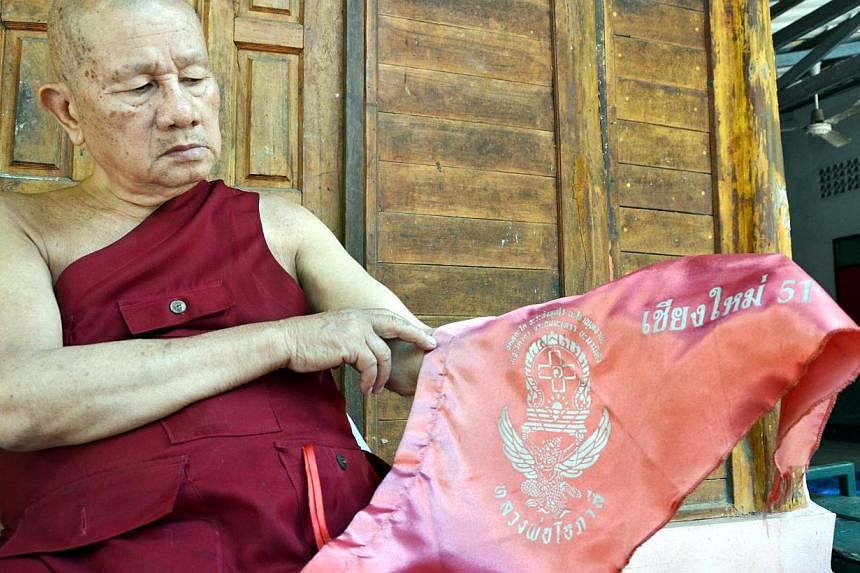Phra Khru Suthep Sitthikun, the abbot of Sri Boon Ruang temple in Chiang Mai, stares glumly at the pile of red flags by his feet.
A week ago, they were removed from the wall around his 700-year-old temple, as part of the Thai junta's bid to erase all traces of political affiliation in the north, a stronghold of the "red shirt" movement. The red shirts are key supporters of the ousted government.
The junta feels eradicating such "colour-coded" politics will help to heal the rifts created by the kingdom's nearly decade long political conflict. But Phra Khru Suthep is not hiding his unhappiness about the whole affair.
"These are blessed flags," he says, pointing to the prints on each flag to honour his spiritual teacher Luang Por Oh Pa See.
About three years ago, he wanted to dress up the temple walls with these flags to "protect" visitors to the temple, he said. Frequent visitors, who hailed from the Rak Chiang Mai 51 "red shirt" group, decided to sponsor the flags and flagpoles. Hence the words "Rak Chiang Mai 51" at a corner of each flag.
The junta deemed the flags as political symbols and decided to remove them.
The abbot remembers telling the policemen who had turned up with soldiers: "If you want to take them out, take them out yourself. … If I call people living from around here to remove them, it will become a big issue."
Since the May 22 coup, a community radio station run by the Rak Chiang Mai 51 group has been raided by soldiers and had its broadcasting equipment removed. A hotel owned by its leader Pechawat Wattanapongsirigul next door has been repeatedly raided by the military.
As a result, the hotel's caretakers decided to move a giant picture of self-exiled former premier Thaksin Shinawatra from the lobby into its disused snooker room.
Thaksin, who was toppled by a military coup in 2006, is adored by the rural masses in north and northeast Thailand. It was his ouster that gave birth to the "red shirt" movement.
About three hours drive away in Phayao, another northern province, a well-known 2.5-metre-high concrete marker proclaiming its Chun district as a "red shirt district" has been given a coat of white paint by officials.
The "red shirt" status, coined with the consent of its 86 component villages, was declared with much fanfare in the presence of some 3,000 people back in 2012. The marker sits on a small hill at the gateway to the district.
Intriguingly, even after local officials' whitewash, the original red paint on one of its three vertical surfaces has been left untouched.
Asked about this, local "red shirt" leader Siriwat Japamata smiles and would only say: "You know why they don't repaint it all."


